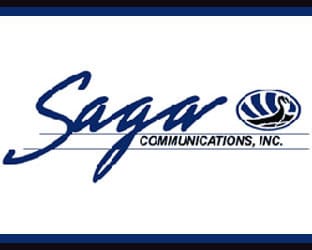CHARLOTTSVILLE, VA. — The Chief the FCC Media Bureau’s Audio Division has denied an Informal Objection submitted by Saga Communications, and is moving forward with its approval of a modification request from a crosstown owner that will positively impact its FM translator targeting a big college town.
That would be the Virginia city of Charlottesville, home to the University of Virginia and made musically renown as the locale where Dave Matthews Band got its start, Saga operates stations through Tidewater Communications, including WCVL-FM.
A competitor in the market is Piedmont Communications, owner of W228ED at 105.5 MHz. The FM translator is licensed to Charlottesville, and has a short but lengthy history dating to March 28, 2019, when it was owned by iHeartMedia.
On that date, W228ED was cleared for a construction permit. In May 2020, a swap was engineered with Piedmont that gave iHeartMedia an FM translator in Tallahassee, Fla., in exchange of the Charlottesville facility. It wasn’t until October 2021 that an assignment application was filed with the Commission, which resulted in a petition to deny filed by Saga.
At issue was a tower site. A locale 16 miles north was determined to be a suitable home — a tower that just happened to be owned by Piedmont. Consummation of the license transfer occurred in July 2022.
One month later, Piedmont requested special temporary authority (STA) to take the W288ED silent “in light of anticipated programming and operational changes.” W288ED was at the time rebroadcasting primary station WKTR-AM in Earlysville, Va., licensed to CSN International, as a fill-in translator.
On October 24, 2022, Piedmont filed a Modification Application, specifying new primary
station WVCV-AM in Orange, Va., licensed to La Promesa Foundation, with a transmitter site in Charlottesville that would be “closer in proximity to the location specified in the underlying original CP granted” to iHeart through a licensee carrying its former name, Clear Channel.
On November 2, 2022, Tidewater (the Saga licensee) filed an Informal Objection, contending that by taking the FM translator silent in August 2022, Piedmont violated a condition of its license, which states that “grant of this license application is conditioned on the continuous operation of the licensed facility for the twelve-month period following
grant . . . unless the licensee rebuts the resulting presumption that the authorized facilities were temporarily constructed.”
Furthermore, Saga presents “circumstantial evidence” that construction of the FM translator was temporary — specifically, the fact that the license application was filed three days before the expiration of the Construction Permit and that Piedmont took the station silent soon after assuming ownership of the FM translator four months later.
In its retort, Piedmont argued that the FM translator’s licensed facility is not temporary because it is built on an existing tower, owned by Piedmont, registered more than 30 years ago, and the longtime site of a full service AM station.
Saga responded by noting that any period of silence during the first year of operation not only triggers the presumption but also forecloses rebuttal. “The temporary nature of the [FM translator]’s operation is based not on whether the tower … is a permanent structure, but rather on the violation of the license condition, whereby operations were suspended just 6 days after Piedmont acquired the [FM translator].”
After more back and forth, Al Shudiner, the Audio Division Chief within the FCC’s Media Bureau, decided on the matter.
“Informal objections, like petitions to deny, must allege properly supported facts that,
if true, would establish a substantial and material question of fact that grant of the application would be inconsistent with the public interest,” he said.
Saga did not meet this burden.
Importantly, Shuldiner determined that a station’s silence in the first 12 months of operation—whether authorized by silent STA or not—triggers a presumption that the station’s facilities were temporarily constructed. The FM translator’s silence did not create an “open and shut” case of temporary construction, as Saga’s Tidewater operation contended.
“In this case, we find that Piedmont has presented facts that adequately rebut the presumption of temporary construction,” Shuldiner said. “[T]he reason for the station’s silence and proposed relocation was the implementation of a legitimate and reasonable business plan to transition the station from rebroadcasting one primary station to another pursuant to an assignment and modify the facility to provide fill-in service for the new primary station’s listeners. We reject Tidewater’s argument that either Clear Channel’s
intention to sell the station after licensing or Piedmont’s intention to relocate the station after acquiring it, alone, establishes that the station was temporarily constructed.”




